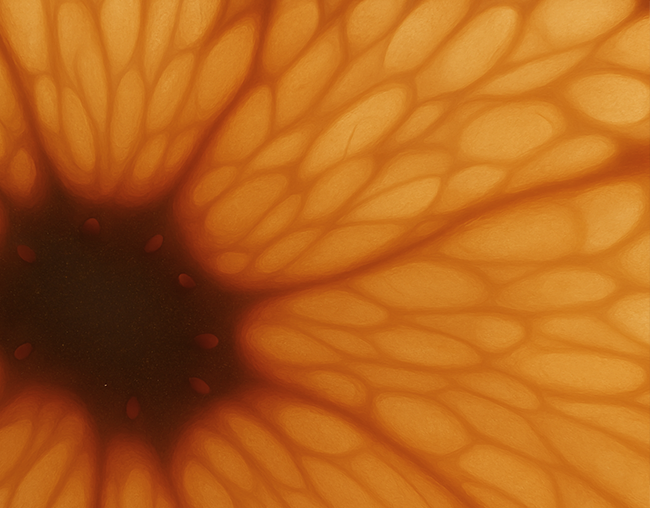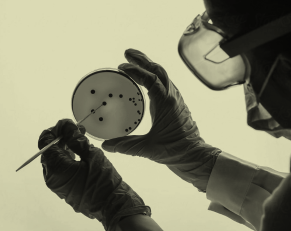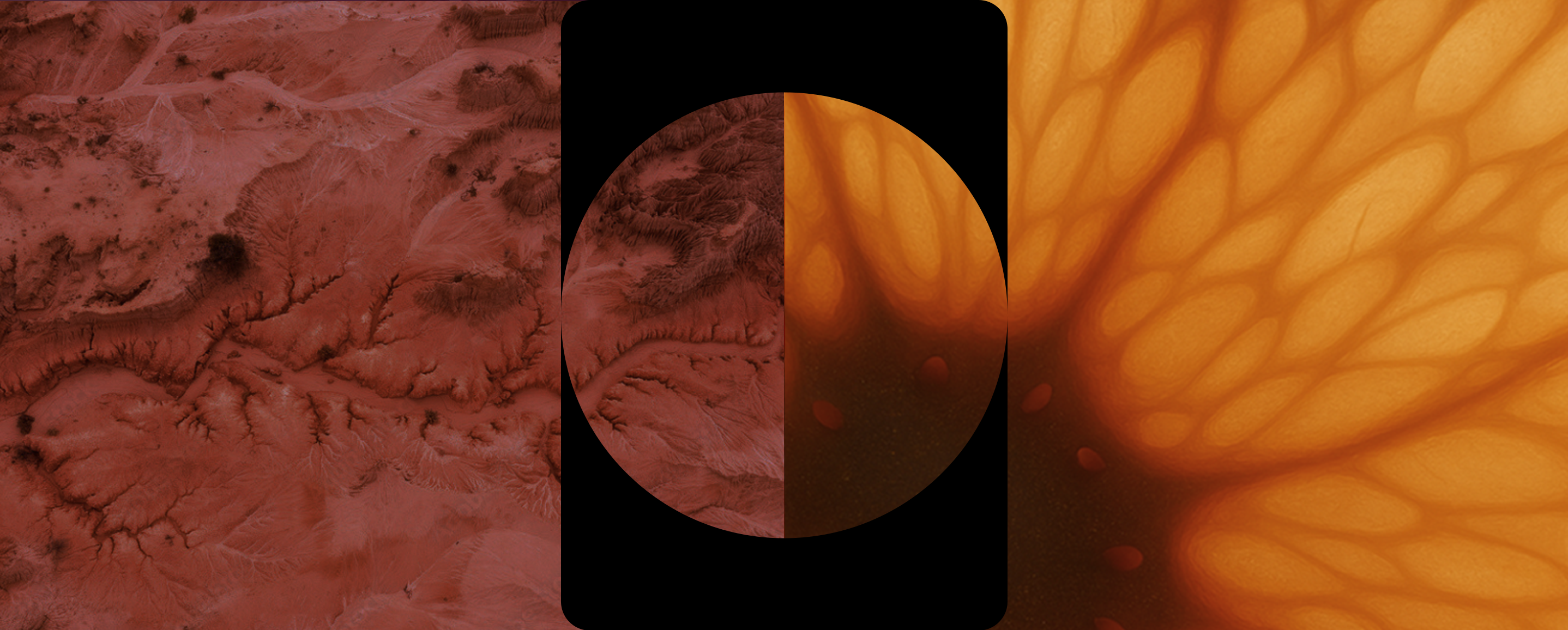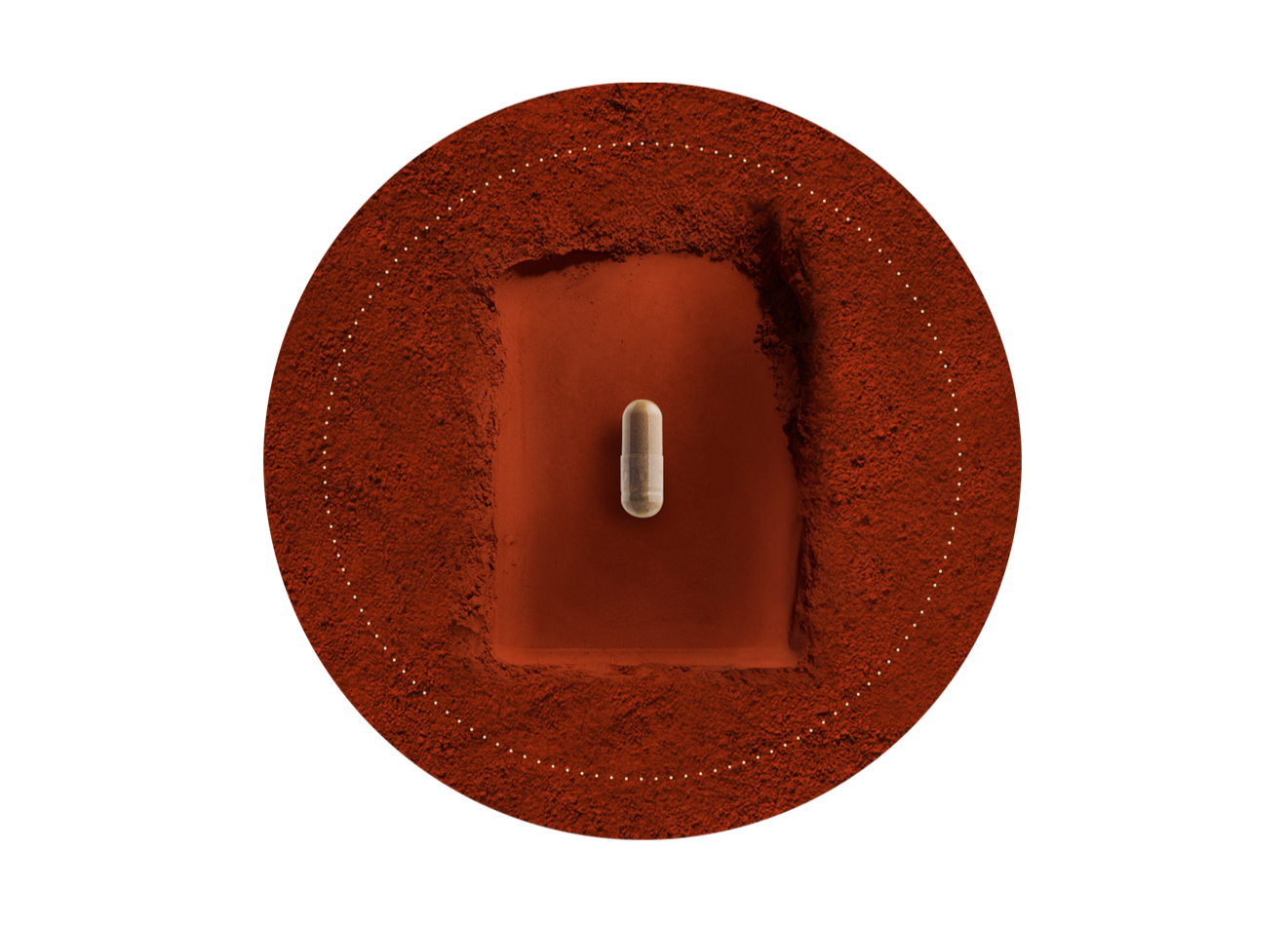
Our approach
At Land Lab, we approach product development through the lens of translational science — integrating Indigenous ecological knowledge with modern nutritional biochemistry, toxicology, and clinical research. Our goal is clear: to develop evidence-based, functional food formulations that are safe, bioactive, and effective.
This work is guided by our Scientific Advisory Council — a multidisciplinary team of biochemists, doctors, dietitians, and naturopaths. Together, they ensure that every decision is informed by evidence, clinical rationale, and a deep respect for the native and non-native ingredients we work with.

Why native plants?
Australian native plants have evolved under some of the harshest environmental conditions on the planet. In response to chronic stressors like UV exposure, drought, and nutrient-poor soils, many of these plants have developed unique biochemical defence systems — including unusually high levels of polyphenols, antioxidants, prebiotic fibres, and secondary metabolites. These aren’t just botanical adaptations — they’re potential mechanisms of action in human physiology.
Yet despite millennia of use by First Nations communities, many of these botanicals remain under-researched in the context of human health. There is limited clinical or mechanistic data to support their therapeutic use. We believe this is a missed opportunity — both for science and for health.
Our Scientific Process
Before we consider using a native ingredient, we undertake a multi-phase research pipeline:
Literature review & traditional use analysis
We begin with a dual review of existing peer-reviewed evidence and the documented traditional uses of each plant. This includes known bioactives, safety profiles, pharmacokinetics (where available), and ethnobotanical context. Consultation with Indigenous partners ensures cultural relevance and helps inform appropriate use.
In Vitro safety & mechanistic studies
All native ingredients undergo toxicological and antinutrient screening using co-cultured intestinal cell lines. We assess:
- Cytotoxicity
- Antinutrient content (e.g. phytates, oxalates, lectins, tannins)
- Presence of potentially harmful alkaloids or secondary compounds
Gut health & functional analysis
We use an advanced in vitro simulated gut model to examine how ingredients and final formulations affect:
- Microbial diversity and composition
- Short-chain fatty acid (SCFA) production
- Antioxidant activity
- Phenolic metabolite generation
- Prebiotic effects
This level of testing provides insight not just into what’s in the plant, but what it does once metabolised — including colonic fermentation pathways and postbiotic activity.
Formulation & delivery science
We collaborate with manufacturers to develop delivery systems (e.g. microencapsulation) that preserve bioactivity through the digestive tract. Final formulations are then re-tested in gut models to validate compound stability, release kinetics, and functional activity.

Respect for knowledge systems
Our research does not supersede traditional knowledge — it integrates with it. We see traditional use as a form of longitudinal human data, passed down over generations. Traditional knowledge offers deep, long-term insights into how plants have been used safely and effectively. We honour that by consulting with First Nations partners at every stage, by co-designing fair economic partnerships with our First Nations partners, and by ensuring that any scientific research we conduct is additive, not extractive. Scientific validation doesn’t replace Indigenous knowledge; it expands the evidence base to ensure safety, efficacy, and appropriate modern use.
We aim to contribute meaningfully to the body of scientific literature on Australian native plants, while safeguarding the cultural and intellectual property of the First Nations communities who have long stewarded them.
Meet Our Science Advisory Board
Our Scientific Board consists of scientists, researchers, doctors, and health professionals, including First Nations leaders. Each member brings deep domain expertise across fields like maternal health, biochemistry, pharmacognosy, and nutritional science, ensuring that every decision is grounded in evidence, not opinion. This diverse group ensures our products are evidence-based, culturally respectful, and therapeutically relevant.

Dr. Hannah LaBrooy
MD, MPH
Dr. Hannah LaBrooy is a medical doctor and public health researcher with a multidisciplinary background spanning clinical medicine, public health, and international aid and development. She holds a Master of Public Health and previously worked as a Research Project Coordinator at the Kirby Institute (UNSW), contributing to publications in leading journals including The Lancet.
Her commitment to public health and equitable innovation was shaped by early experiences working in regional and remote drug and alcohol settings and a formative internship at The Grameen Bank in Bangladesh. Her professional and academic experience has focused on addressing health inequities, particularly in the area of access to care among marginalised populations.

Dr. Luke Williams
PhD
Dr. Luke Williams is a proud Gumbaynggirr man of Northern NSW and a Research Fellow at the Queensland Alliance for Agriculture and Food Innovation (QAAFI). His work explores the intersection of traditional Indigenous food knowledge and modern food systems, with a focus on native Australian plants. Luke's PhD at RMIT investigated the dietary safety of native foods, a line of research he continues by combining Traditional Custodian knowledge with rigorous chemical and toxicological analysis.

Dr. Oladipupo Adiamo
PhD
Dr. Adiamo is a Research Fellow and Food Chemist at the Centre for Nutrition and Food Sciences, QAAFI, UQ. His research focuses on the interactions between food structure and quality, with the goal of developing functional food products that deliver enhanced nutritional outcomes. Currently, his work investigates the release of nutrients and bioactive compounds from underutilised plant materials during digestion and colonic fermentation, and their potential impact on human gut health. He applies innovative techniques such as in vitro dynamic gut model, Oxford Nanopore Technology for microbiome analysis and LCMS for metabolite profiling.

Chelsea McCallum
Accredited Practising Dietitian
Chelsea McCallum is an Accredited Practising Dietitian with deep expertise in gut health and Irritable Bowel Syndrome (IBS). A former recipe developer turned clinical practitioner, Chelsea takes a science-based approach to managing IBS. She is the founder of The IBS Relief Program, a fully digital platform that has supported individuals across Australia, New Zealand, North America, the UK, and Europe. Her work is rooted in inclusivity and empowerment, making evidence-based gut health and IBS care more accessible and less overwhelming.

Freya Lawler
Clinical Naturopath
Freya Lawler is a naturopath, nutritionist, and fertility educator who specialises in endometriosis, complex reproductive conditions, and IVF optimisation. She supports individuals and couples with evidence-based preconception care, focusing on egg and sperm quality, hormonal balance, gut health, and inflammation.
Freya has a special interest in the microbiome’s role in overall health, fertility, and endometriosis, and works closely with leading gynaecologists and surgeons at Elgin House Women’s+Health as part of a truly integrative healthcare team.

Nikki Preiner
Accredited Practising Dietitian
Nikki Preiner is an Accredited Practising Dietitian and Nutritionist with extensive experience across clinical practice, public health, and healthcare leadership. She holds a Master of Science in Nutrition, Dietetics and Exercise Rehabilitation and has held senior roles within NSW Health, including Unit Head and Deputy Head of Department in major metropolitan hospitals.
Nikki specialises in women’s health and hormonal conditions, combining clinical rigour with a whole-person approach to care. She has contributed to research including the PREGGIO study and worked extensively in gestational diabetes care, bringing both subject matter expertise and leadership in service delivery, workforce development, and quality improvement. Nikki brings valuable insight into the intersection of clinical nutrition, public health, and system-level change.

Lauren Jeffery
Registered Pharmacist
Lauren Jeffery is a pharmacist with a background in clinical hospital pharmacy and public health projects. She holds a Master of Business Administration and has most recently worked on a digital health project translating evidence-based clinical practice into digital tools for practitioners and patients. Her hospital work has covered both rural/regional and metropolitan areas; and she understands the barriers faced in healthcare by those outside major cities. She is most interested in the intersection of health and innovation; and bridging the gap between health science and public understanding.

Renee Jennings
Accredited Practising Dietitian
Renee Jennings is an Accredited Practising Dietitian and Nutritionist with a Master’s degree in Dietetics. She has extensive experience across clinical dietetics, public health nutrition and leadership. Her work focuses on women’s health, with particular expertise in fertility, pregnancy and postpartum care, and a strong interest in how food systems and environmental exposures intersect with maternal and infant health.
Renee is committed to nutritional science and the translation of emerging research into real-world dietary guidance. She is the author of Nurture the Seed, an evidence-based book on prenatal nutrition, and contributes to tertiary education at the University of Wollongong. She is a passionate advocate for ensuring all women have access to up-to-date, scientifically rigorous nutrition information.
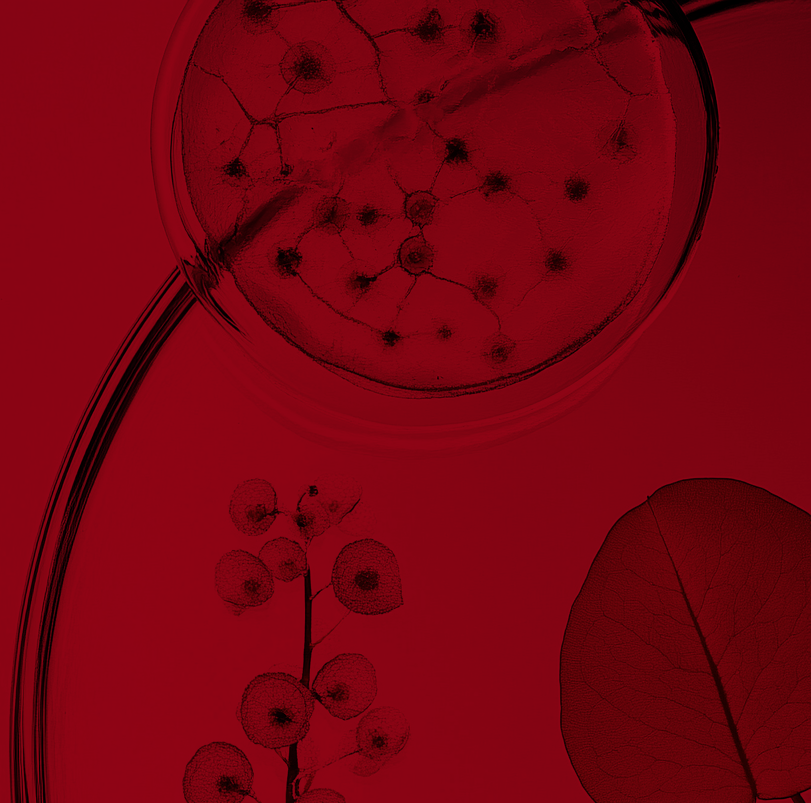
In partnership with the University of Queensland
We’ve partnered with research institutions like the University of Queensland, one of Australia’s most respected research institutions, to take a deeper look into how our formulas behave in the body.
They conduct nutritional analyses as well as in vitro studies using tools such as the simulated gut model, which simulates the different compartments of the human gastrointestinal tract — including the stomach, small intestine, and colon — and is used to study digestion, microbial metabolism, and the effects of different compounds on the gut microbiome.
Through advanced studies, including simulated gut models and in vitro testing, we test for:
• Nutrient absorption (bioavailability)
• Microbial activity and gut health impact
• Comparative effects between native and non-native ingredients
This isn’t just product development, it’s evidence-led formulation.
Transform Your Health with Our Science.
Shop our range of evidence-based supplements powered by native Australian plants.

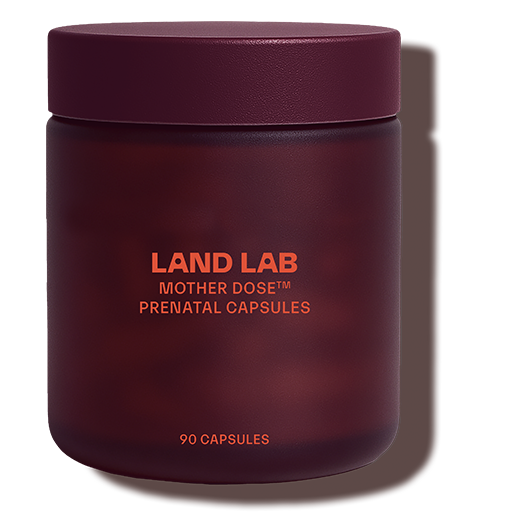
Dive Deeper
Explore the Science Behind Mother Dose™
Want to know what makes our first formula different? Explore the evidence, thinking, and formulation decisions behind Mother Dose™—our flagship prenatal, and the first of many products to come.
For Curious Minds:
Download our peer-reviewed White Paper for a full breakdown of clinical rationale, ingredient selection, and supporting research.
For Practitioners:
Access our Health Professional Fact Sheet for a quick-reference overview of key ingredients, dosages, and clinical indications.
REVIEWED BY OVER 50 HEALTHCARE EXPERTS
Our flagship prenatal, Mother Dose™, has been peer-reviewed by doctors, dietitians, naturopaths and midwives.
SEE ALL REVIEWS"This product has been so thoughtfully crafted to nourish the body with nutrients that are easily absorbed. The addition of traditional indigenous ingredients and consideration of addressing morning sickness really highlights how much care was taken to nurture women’s bodies through conception and pregnancy."
"Land Lab’s prenatal supplement is a fantastic choice; it’s high-quality, evidence-based, and formulated with the highest choline dosage on the market."
TRANSFORM YOUR HEALTH WITH OuR SCIENCE


